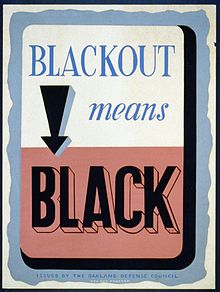Going Forth On the Fourth After Strict Blackout Conditions and Requisitioned Gunpowder Had Been the Law
by Julia Sneden

When my son took his small children to their first fireworks display, he noted that his daughter was more frightened than thrilled. Standing in the dark beneath all those shimmering, falling bits of fire didn’t suit her at all.
I can understand that perfectly. She was only about five years old, but the first time I saw real fireworks on site, I, too, was terrified — and I was almost eleven. My father and stepmother had taken my brother and me to one of the first displays of fireworks after World War II, thinking it would be a real treat for us. Alas, I hated it.
Perhaps my reaction was occasioned by having seen one too many wildfires on the hill behind our house. California in summer is, as current news can attest, tinder-dry. Back in 1944, my father spent one long night up on our roof with a hose, protecting us from sparks that blew from the field fire behind the Miller’s hilltop house. The line of eucalyptus trees behind their barn had gone up with a single whoosh, on account of the large amount of oil contained in eucalyptus leaves. Firefighters finally managed to stop the blaze, but not until it had burned Miller’s barn and killed a couple of their horses. It was a terrifying lesson to all of us children that sparks from above weren’t a bit fun.
Of course during World War II, we kids didn’t know what fireworks were, at least not in Redwood City, California. All forms of gunpowder were requisitioned by the military, and even if fireworks had been available, the entire west coast of this country was under strict blackout conditions. Our windows were covered with black shades at night, and the headlights of all vehicles (including our parents’ car) had black hoods affixed to the top half of the lens. A fireworks display would have been unthinkable.
We didn’t even have firecrackers, something my older brother and his friends bemoaned. They described to me in great detail the thrill of lighting a string and tossing it into the street. It didn’t sound like much fun to me. I mean, all that noise, and for what? (Come 1947 my suspicions were confirmed: firecrackers were noisy, dangerous, and frightening, especially if you were a little girl who had a big brother and chum who delighted in tossing them near you).
We did, however, find ways to celebrate the glorious Fourth during the War. In lieu of firecrackers, my mother handed us pot lids, with which we paraded up and down our long driveway, banging them together and shouting “Happy Fourth of July!”
Pages: 1 · 2
More Articles
- National Archives Foundation: Archives Experience, A Republic, If You Can Keep It
- Jo Freeman Writes: The Lost Promise, American Universities in the 1960s by Ellen Schrecker
- Julia Sneden Wrote: Going Forth On the Fourth After Strict Blackout Conditions and Requisitioned Gunpowder Had Been the Law
- On A Chilly Saturday, Winter Graduates Turn to Their Future: “Some of (your) most important lessons came from a real-life curriculum no one ever anticipated”
- Journalist's Resource: Religious Exemptions and Required Vaccines; Examining the Research
- Kristin Nord Writes: My Mother As a Young Widow Restarted Her Life Again in Midlife; I Began to Follow in Her Footsteps
- Jo Freeman: How to Debate a Bully
- Supreme Court Surprises The Public in LGBTQ Ruling: What is Sex Discrimination?
- Searching Still Photographs for Army Personalities: At the Still Picture Branch at the National Archives, You Can Find Personality Indexes Aiding the Search for Specific Individuals in the Military
- Julia Sneden Wrote: Remembering ... On a Day Once Known as 'Decoration Day'






